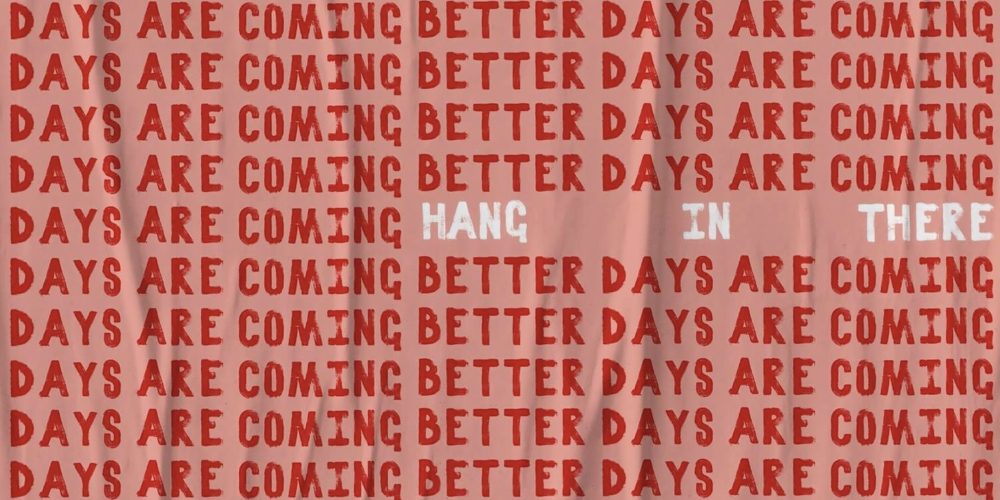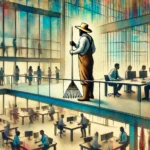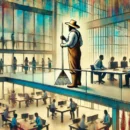Use the pandemic to seek the best version of you

People really reveal themselves in a crisis, and the coronavirus pandemic is one of the most challenging global situations in human history. The health crisis has morphed into an economic cataclysm.
And it will reveal who we really are.
When times are good, we can all look amiable and generous. When times are bad, whatever was hidden from the surface bubbles up. Some people play big, but many stay small.
What is the bigger deal in a pandemic? In a word, compassion.
As the world around us goes into deep distress, the well-to-do need to step up and help those less advantaged. That’s a very human trait – we generally do feel empathy and concern for one another. The reveal is in how we step up.
For one type of person, the giving is automatic, instinctive, natural and quiet. This type of human sees others in their vicinity in severe difficulty, and gives to the best of their ability. Without drawing any attention to the act, or seeking to be praised for it.
But that’s not everyone. Another bunch of folks are also “generous” – perhaps even more so, in terms of the quantum given. But they need a payoff. The donating must be visible, it must be branded, it must be photographed, it must be recorded somewhere. Every day, our newspapers are full of choreographed photos of benevolent people in masks giving food or personal protection equipment or the like to someone else. While posing for the camera.
Don’t get me wrong: given the grave inequalities in most of our societies, most of this giving is necessary. I would much rather that the vulnerable don’t starve, even if it means tolerating some very showy donations and PR machinations. But I do ask that some of us pause: is this the only way we can give, when there is a return that accrues to us? And should we not be working harder and more sustainably to remove this desperation in our midst, rather than just showing up with temporary donations when there is distress?
Many businesses are also in acute difficulty, and there will be no avoiding the inevitable: layoffs. Many employees will lose their jobs, some permanently. This is extremely sad, but you may observe a difference in how it is dealt with. Some leaders first try to take the pain everywhere else in the business (including their own incomes) before putting their people out into the street – and do it with a genuinely heavy heart if it becomes unavoidable.
Another type of leader feels no compunction, says “well, that’s business” and fires people without delay to improve the bad numbers – and then negotiates a bonus from the board at the end of the year for being decisive in a crisis.
A last observation. The pandemic and subsequent self-isolation sideswiped most of us. It was unexpected, disruptive and scary for pretty much everyone. Initially, we were all stunned. Notice how people respond when they’ve calmed down, however. One type, even when relatively privileged and comfortable, will keep complaining and keep looking for scapegoats. This type will behave as though uniquely afflicted; and take out their anger at the situation on others, often close family members. They will throw tantrums and accusations and make everything worse for people around them.
There’s another type of person at play, however. The one who calms down quickly and takes the matter stoically. The one who understands the disruption as a reminder of human fragility and vulnerability, not as an unfair and personal setback. The one who goes to great lengths to check in with other people and calm them down, not add to their anxiety. And the best ones? They turn their focus outward, away from their own discomfort, towards genuinely helping others. They spend their time radiating, rather than absorbing.
Now that’s rare, and that’s a bigger deal.
As we all try to grapple with unwanted situations and unexpected tribulations, it’s worth asking ourselves: which person do I want to be? The genuine giver or the calculating contributor? The chronic complainer or the selfless supporter? Crises reveal our true selves to the world, but it’s never binary; we are not either/or. There is a spectrum of possibilities.
Some of these traits may be ingrained deeply in our personalities, and none of us can claim to be on the right side of things in all situations. But a crisis is a time to look for the best version of ourselves. We can move ourselves along the spectrum towards compassion, empathy and generosity and become the people who lead us out of this predicament, not those who make it worse.
(Sunday Nation, 14 June 2020)

Buy Sunny Bindra's book
UP & AHEAD
here »
Popular Posts
- What is a nation?June 30, 2024
- To be a great leader, think like a farmerJuly 21, 2024
- Don’t be surprised by surprisesJuly 14, 2024
- It takes mavericks to change the gameJuly 7, 2024
- Why we should all be activistsJune 16, 2024















